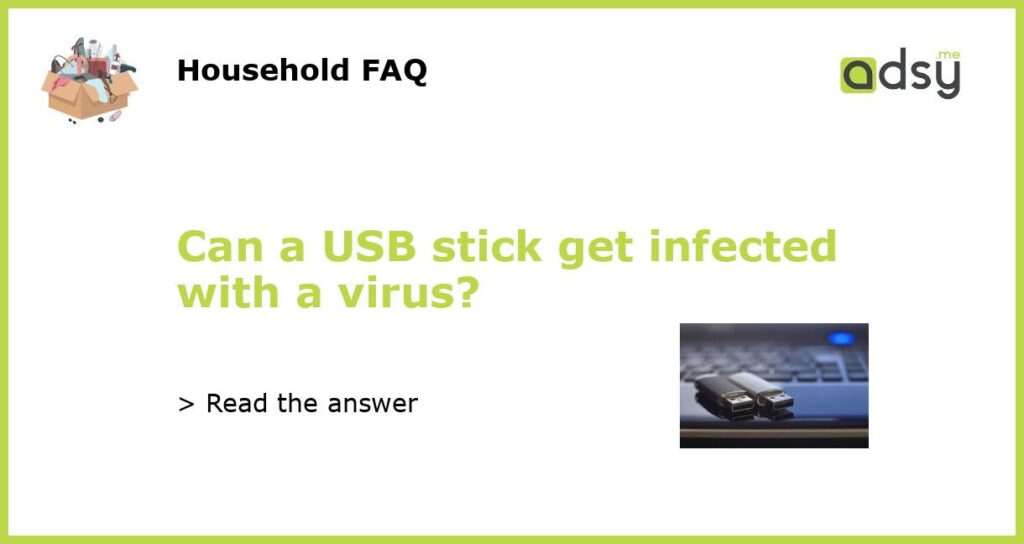Yes, a USB stick can get infected with a virus
USB sticks are a commonly used portable storage device that allows users to transfer data between multiple devices. However, they are also susceptible to viruses and malware. Viruses can easily spread from an infected computer to a USB stick and vice versa. This means that if a USB stick is connected to an infected computer, it can become infected with a virus.
How does a USB stick get infected?
USB sticks get infected with a virus through various means. One common way is through malware-infected files. When a user connects a USB stick to a computer that is already infected, the malware can automatically transfer to the USB stick. This can happen when the user unknowingly opens an infected file or when the malware spreads through vulnerabilities in the operating system.
Another way a USB stick can get infected is through Autorun, a feature that automatically runs a program when the USB stick is inserted into a computer. If a USB stick has Autorun enabled and is connected to an infected computer, the virus can replicate itself onto the USB stick. This can happen without the user’s knowledge, making it easy for the virus to spread.
What are the risks of an infected USB stick?
An infected USB stick poses several risks to both the device it is connected to and any other devices it may come into contact with. Once a virus is transferred onto a USB stick, it can spread to any computer or device it is connected to. This can result in the loss or corruption of data, as well as the theft of personal information.
Additionally, an infected USB stick can be used as a medium to distribute malware. If the USB stick is shared with others or connected to multiple devices, the virus can easily spread to those devices, creating a chain reaction of infections. This can lead to widespread damage and compromise the security of multiple systems.
How to protect your USB stick from viruses?
Although USB sticks can be susceptible to viruses, there are several measures you can take to protect your USB stick and prevent it from getting infected. Here are a few tips:
1. Keep your antivirus software up to date: Installing and regularly updating antivirus software on your computer can help detect and remove any potential viruses or malware before they can infect your USB stick.
2. Scan your USB stick before use: Before connecting your USB stick to any computer or device, scan it with your antivirus software to ensure that it is free from any viruses or malware. This can help prevent the spread of infections.
3. Disable Autorun: Disabling the Autorun feature on your computer can prevent viruses from automatically transferring to your USB stick when it is inserted. This can significantly reduce the risk of infection.
4. Be cautious when inserting your USB stick into unknown devices: Avoid connecting your USB stick to unfamiliar or suspicious devices that may be infected with viruses. Stick to trusted devices and ensure they have updated security software.
5. Backup your data regularly: Creating regular backups of your data can help protect it in case your USB stick becomes infected with a virus. This way, even if your USB stick is compromised, you can still retrieve your important files.
In conclusion,
Yes, a USB stick can get infected with a virus. It is important to be vigilant and take necessary precautions to protect your USB stick and the devices it is connected to. By following the tips mentioned above and practicing safe computing habits, you can minimize the risk of infecting your USB stick and the spread of viruses.





